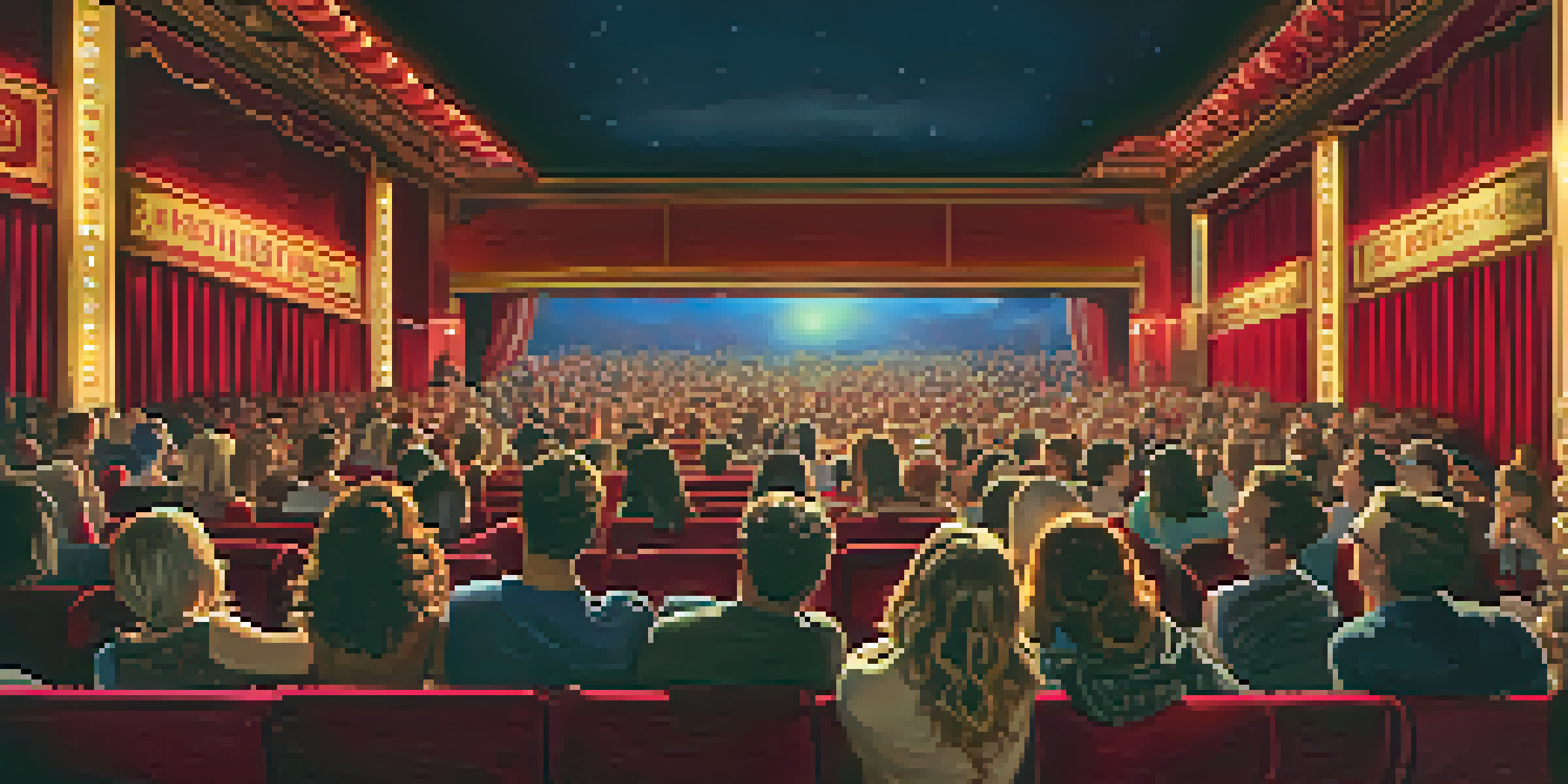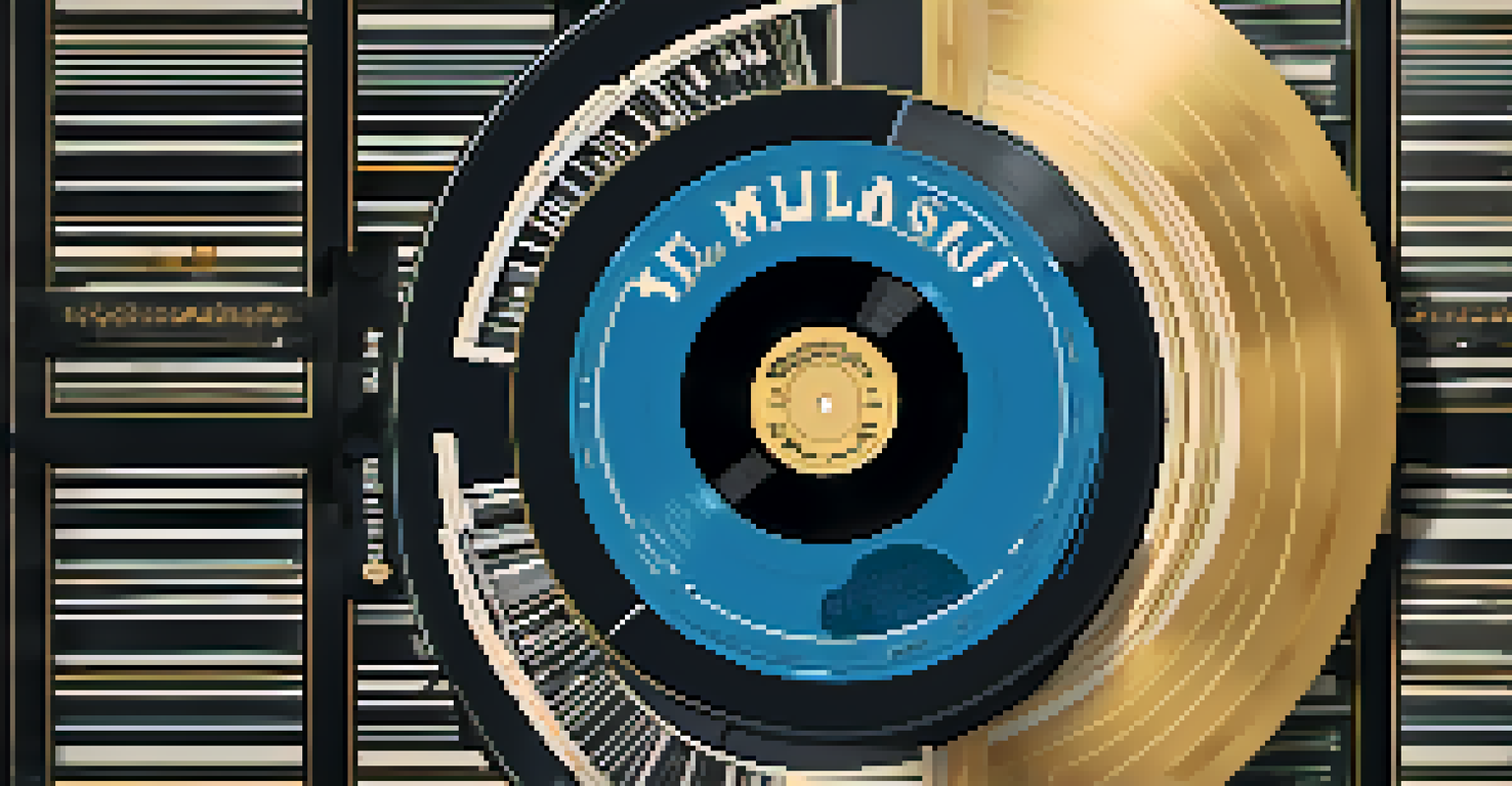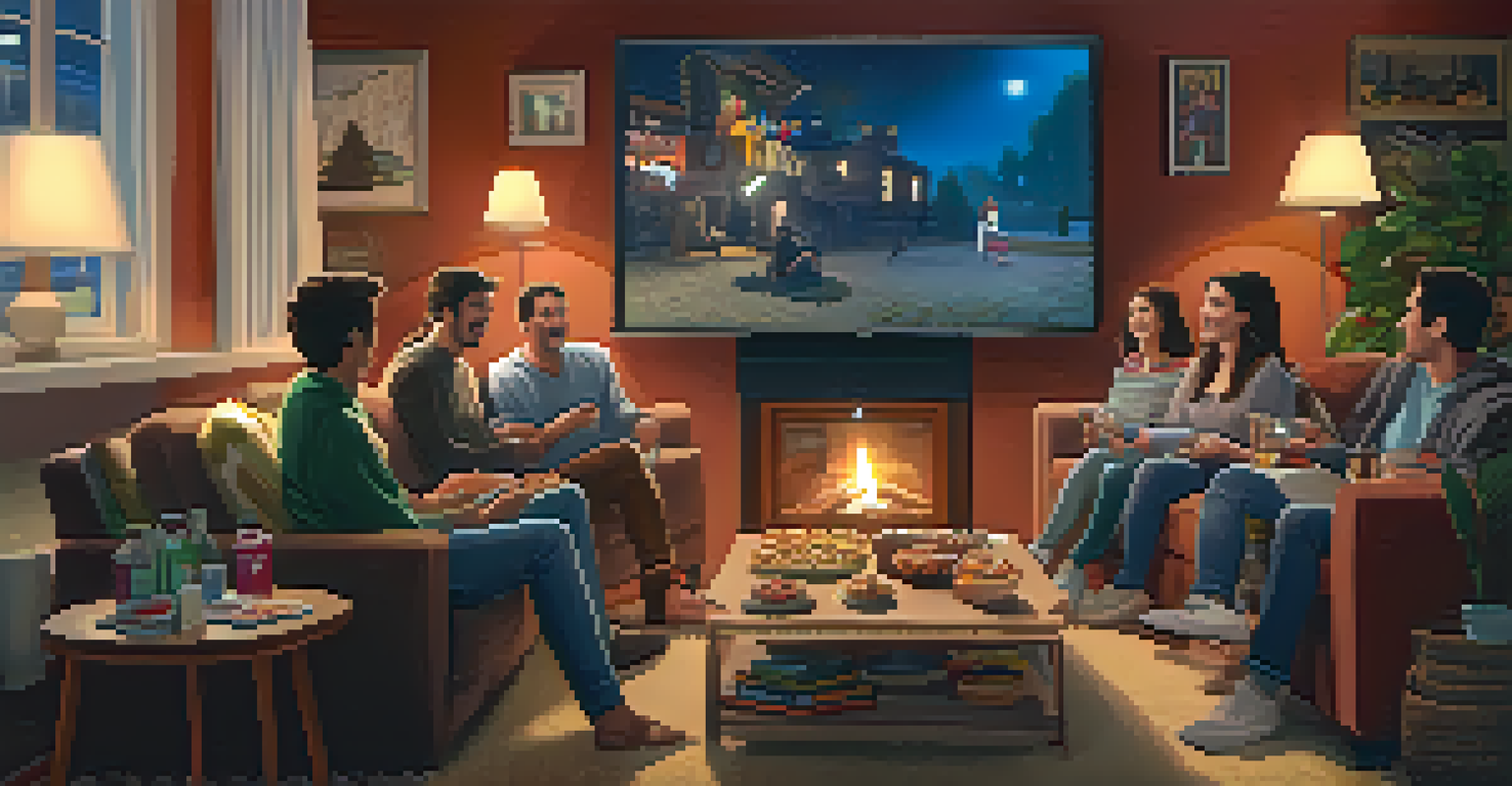How Movie Soundtracks Shape Music Consumption Trends

The Emotional Connection of Soundtracks
Movie soundtracks often evoke strong emotions, enhancing the viewer's experience. When a particular song plays during a pivotal scene, it can create lasting memories associated with that film. This emotional tie can influence listeners to seek out similar music in their everyday lives.
Music can change the world because it can change people.
For example, think of how 'Guardians of the Galaxy' revitalized interest in classic hits from the '70s and '80s. Songs like 'Hooked on a Feeling' became popular again, not just for their nostalgic value but for their connection to the film's characters and themes. This emotional resonance is a powerful driver in our music choices.
As people find themselves drawn to these tracks, they often explore complete albums or similar artists, resulting in a shift in music consumption patterns. The soundtrack acts as a bridge, connecting audiences to a broader musical landscape.
Soundtracks as Discovery Platforms
Film soundtracks serve as a unique platform for music discovery. Many listeners are introduced to new genres, artists, and songs through the movies they watch. This can lead to a more diverse musical palate as viewers seek out what they’ve heard on screen.

For instance, the success of 'A Star Is Born' brought attention to Lady Gaga's solo work, leading many to explore her discography. Similarly, Quentin Tarantino’s films often spotlight lesser-known tracks that become instant hits, encouraging fans to dig deeper into those genres.
Soundtracks Enhance Emotional Experience
Movie soundtracks evoke strong emotions, creating lasting memories and influencing listeners' music choices.
This trend highlights how soundtracks can act as a powerful gateway, not just for music consumption but for cultural exchange, encouraging audiences to broaden their horizons and appreciate different styles.
The Role of Streaming Services
With the rise of streaming services, the accessibility of movie soundtracks has transformed consumption habits. Platforms like Spotify and Apple Music often feature curated playlists that include popular soundtracks, making it easier for listeners to discover music from their favorite films.
The music is the soundtrack of our lives.
For example, many users now follow playlists titled 'Best Movie Soundtracks' or 'Oscar-Winning Songs,' which directly reflect their interests in cinema. This not only boosts the popularity of individual tracks but also leads listeners to explore full albums and discover related artists.
As a result, streaming has made it simpler for listeners to dive into the world of film music, often leading to increased sales and streams for artists featured in soundtracks.
How Genres Influence Soundtrack Choices
The genre of a film significantly influences its soundtrack, which in turn shapes listener preferences. For example, a romantic drama might feature a soft, emotional score that resonates with fans of similar music styles. Conversely, an action-packed thriller may rely on high-energy tracks that appeal to different audiences.
This genre alignment can create a ripple effect, where viewers who enjoy certain genres of films are directed towards corresponding music styles. An example can be seen in how horror films often incorporate eerie soundtracks that lead fans to explore darker, moodier music.
Soundtracks as Music Discovery Tools
Film soundtracks introduce audiences to new genres and artists, expanding their musical tastes through cinematic connections.
Ultimately, this connection between film genres and soundtracks helps create a niche audience that expands their music consumption within those specific themes.
The Impact of Iconic Movie Themes
Iconic movie themes often transcend the films themselves, becoming cultural touchstones that influence music consumption. Think of John Williams' score for 'Star Wars' or Hans Zimmer's work in 'Inception'—these pieces create an instant association with the films, driving listeners to seek out orchestral or cinematic music.
These themes often get remixed or covered by various artists, further embedding them into popular culture. As listeners encounter these variations, they may become curious about the original compositions and the composers behind them.
This phenomenon not only boosts the popularity of the original scores but also encourages a newfound appreciation for orchestral music in general, diversifying the listening habits of fans.
Cross-Promotion Between Films and Artists
Film studios increasingly collaborate with artists to promote soundtracks, creating a symbiotic relationship that benefits both parties. When a popular artist releases a song for a movie, it often garners attention from their existing fan base while reaching new listeners who are fans of the film.
For instance, the collaboration between Billie Eilish and the James Bond franchise resulted in a significant uptick in her streams and visibility. Such partnerships not only elevate the artist's profile but also draw attention to the film's soundtrack, encouraging fans to explore more of the artist’s work.
Future Trends in Soundtrack Evolution
As technology advances, soundtracks will continue to shape music trends and diversify musical representation in films.
This strategy highlights how intertwined the worlds of film and music can be, driving trends in both industries and shaping listener preferences.
The Future of Soundtracks and Music Trends
As technology and consumer habits evolve, so too will the role of soundtracks in shaping music trends. With advancements in virtual reality and immersive experiences, future soundtracks may offer even deeper emotional connections, influencing music discovery in unforeseen ways.
Additionally, as more independent films gain traction, we may see a greater variety of music styles represented on soundtracks. This could lead to a democratization of music consumption, where niche genres gain mainstream attention through film.

Ultimately, the future of soundtracks is bright, with the potential to continue shaping music consumption trends for years to come, making film a vital part of the music discovery process.